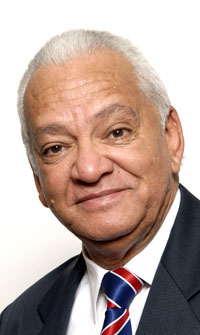Prof. Heideman appointed new Dean at the UFS
 |
| Prof. Neil Heideman |
|
Prof. Neil Heideman has been appointed as the Dean of the Faculty of Natural and Agricultural Sciences at the University of the Free State (UFS). His appointment was approved by the UFS Council during its recent meeting.
Prof. Heideman has been acting in this position since February this year, prior to which he was the Vice-Dean of the Faculty. He joined the UFS in 2003 as the Programme Head of the Faculty of Natural and Agricultural Sciences at the Qwaqwa Campus.
“I see my role as Dean as that of a facilitator of processes that will further strengthen the faculty’s academic capacity, optimise the research environment and create a stimulating teaching and learning environment in which students can develop into skilled critical thinkers and socially responsible, global citizens,” he said.
He chairs the faculty advisory committees such as the Research Committee, Academic Programmes Committee, Community Service Subcommittee, Employment Equity Committee and Buildings Committee. He represents the faculty on the National Science and Technology Forum and the National Science Deans’ Forum, and is also a panel member of the Rhodes Scholarship Adjudication Committee.
He has about 23 years’ university teaching experience, and as a Fulbright Fellow offered a series of seminars on South African conservation issues to senior undergraduate and graduate students at Brigham Young University in the United States in 2007.
He has won several academic awards and is an NRF-rated scientist.
Media Release
Issued by: Mangaliso Radebe
Assistant Director: Media Liaison
Tel: 051 401 2828
Cell: 078 460 3320
E-mail: radebemt@ufs.ac.za
27 September 2010